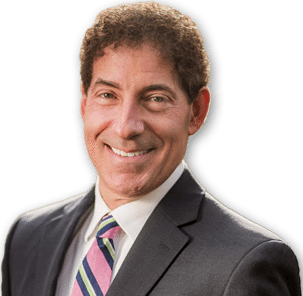The day after Jamie Raskin won his intensely competitive primary for the Democratic nomination for Congress in Maryland’s 8th District, a humanist political action committee that backed him sent a proud email blast.
“If successful in the general election, Raskin will be the only open nontheist serving in the U.S. Congress,” the email said. The Huffington Post quickly published an article headlined, “Congress Likely To Get Its Only Openly Atheist Member in November.”
The only problem? Raskin is Jewish.
“One hundred percent Jewish.” “Emphatically Jewish.” A member of Washington’s Temple Sinai and a father of three children who had bar and bat mitzvahs, Raskin says he has never told anyone is he an atheist.
“I’ve never called myself an atheist,” he said. “I’ve never pronounced upon the existence of a divinity before, and nobody has ever asked me.” If asked in the political sphere, he says he wouldn’t answer.
Jews who identify strongly with Judaism but do not believe in God are not at all uncommon. And Americans who are not religious at all and are not sure what they think about God are extremely numerous, but basically invisible in political life.
The confusion in this instance seems to have arisen from the Freethought Equality Fund, the political action committee of the American Humanist Association, which embraced a winning candidate who has spoken for years about the separation of church and state.
Raskin says he gladly accepts the label “humanist” – but clarifies that he views it as a philosophical marker, not a religious one.
“Humanist with a small ‘h,'” Raskin said, after the publicity of his supposed atheism. “Like Thomas Jefferson or Michelangelo or John Locke or any of the enlightenment thinkers.”
Humanists subscribe to a philosophy that emphasizes the power of human beings and rational thought. Though the term can refer to either non-theistic or God-centered communities, the American Humanist Association leaves the God part out.
It defines humanism as “a progressive philosophy of life that, without theism and other supernatural beliefs, affirms our ability and responsibility to lead ethical lives of personal fulfillment that aspire to the greater good of humanity.”
The Freethought Equality Fund contributed the maximum $10,000 to Raskin’s campaign as well as about $10,000 more in independent spending on his behalf, according to PAC coordinator Ron Millar. That’s a small fraction of Raskin’s fundraising total of about $2 million, but a large expenditure for the three-year-old PAC, which has only endorsed four candidates in the country in 2016.
Millar said that the PAC sent questionnaires to candidates it was considering endorsing. The questionnaire asked candidates about their views of humanism but did not directly ask whether they believe in God.
Raskin, a three-term state senator, is deeply interested in religion. He quotes from books he has read recently on Mormonism and Anabaptists.
He has also been a favorite among non-religious communities such as the American Humanist Association since 2006, when he testified in favor of gay marriage in Maryland. In response to a legislator who said the Bible defined marriage as a union of a man and a woman, Raskin said, “Senator, when you took your oath of office, you placed your hand on the Bible and swore to uphold the Constitution. You didn’t put your hand on the Constitution and swear to uphold the Bible.”
But his definition of humanism does not quite match up with the American Humanist Association’s, which claims him as a member.
“I’ve always described myself as a humanist, because I think it’s the greatest philosophical movement in human history. Thomas Jefferson, Thomas Paine, Benjamin Franklin, they’re my heroes. . . . I believe that there are humanists of every religious stripe. . . . I’ve met lots of Catholics who describe themselves as humanists.”
An avowed atheist on the campaign trail would indeed be a new presence in Congress.
The Pew Research Center asked the current members of Congress their religion and found that Protestants are in first position (306), followed by Catholics (164), Jews (28), Mormons (16), Orthodox Christian (5), Buddhists (2), Muslims (2), Hindus (1) and Unitarian Universalists (1). Nine more refused to answer.
Just one, Kyrsten Sinema, D-Ariz., described herself as “unaffiliated” but rejected the label “atheist.”
Millar pointed out polls indicating more than half of Americans say they would be less likely to vote for a candidate because he or she didn’t believe in God. And with “nones” among the fastest-growing religious segments in America, Millar says, he’d like to see a candidate who represents the non-religious.
“You know it’s in the Constitution, there’s no religious test for elected officials. But of course, unofficially, there is,” Millar said. “You really need someone who’s highly visible, so that people can identify and say, ‘Hey, there’s somebody just like me as a member of Congress.’ ”
The day after Raskin’s victory, Millar said, “We’re obviously thrilled. . . . He’ll be a role model for other candidates who want to go into the electoral arena. For people who don’t talk about it with their families and friends, it will be easier to talk about it.”
But it seems humanists will have to wait for that role model.
Raskin is a supporter – in his office at American University’s law school a week after his election, he says there’s no better innovation in the whole Constitution than the separation of church and state. But he’s not a fellow traveler.

















